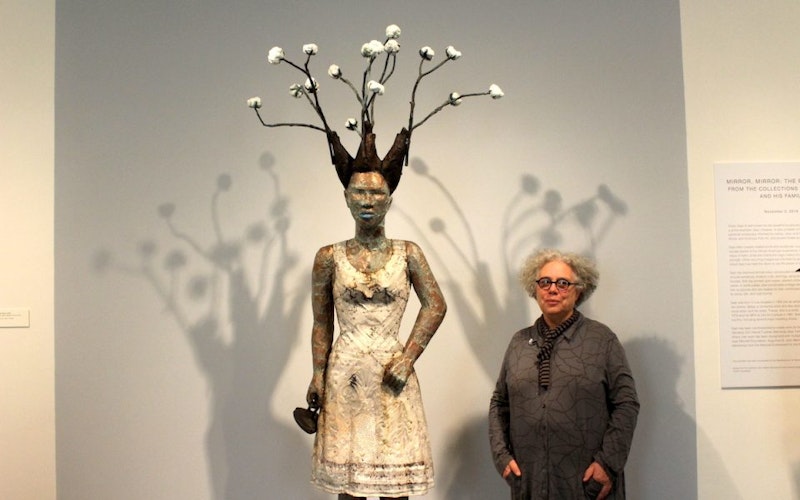Ken Loach: People don’t go to meet each other so much, and even going to the cinema is reduced because people watch films in their own rooms; the beer is cheaper if you buy it in the supermarket and drink it at home.
Alison Saar: I went to a peace rally downtown with my son and afterward he got these plastic samurai swords and was whacking stuff with them.
Loach: He heard the story of the bus arriving in a village with refugees from the Syrian war who were met with opposition.
Saar: Then there is another one where he is down at Lewis and Clark's feet, like a dog.
Loach: From there, opinion diverges.
•••
Saar: (Laughs) You know, I don't know, everybody has got something to whine about. I guess the responses could be different, but I don't know. What do you think?
Loach: At home, we tend to go in and out of fashion a bit.
Saar: It goes back and forth.
Loach: Everybody’s paid union rates, but no private cars, no stand-ins, nothing.
Saar: You learn about the sad parts of the story and not just the raised fist and all of that stuff.
•••
Loach: We didn’t explicitly articulate it at the time but that’s what it turned into: the cameras serving as sympathetic observer.
Saar: Probably it is because the piece is on this campus and it is pretty small.
Loach: It was huge: an extraordinary achievement from nothing.
Saar: Yet one time someone thought they saw a dashiki, and I thought “where do you see a dashiki in all of this?”
Loach: After a few days, two of the Syrian women said they had something for us and brought cakes.

